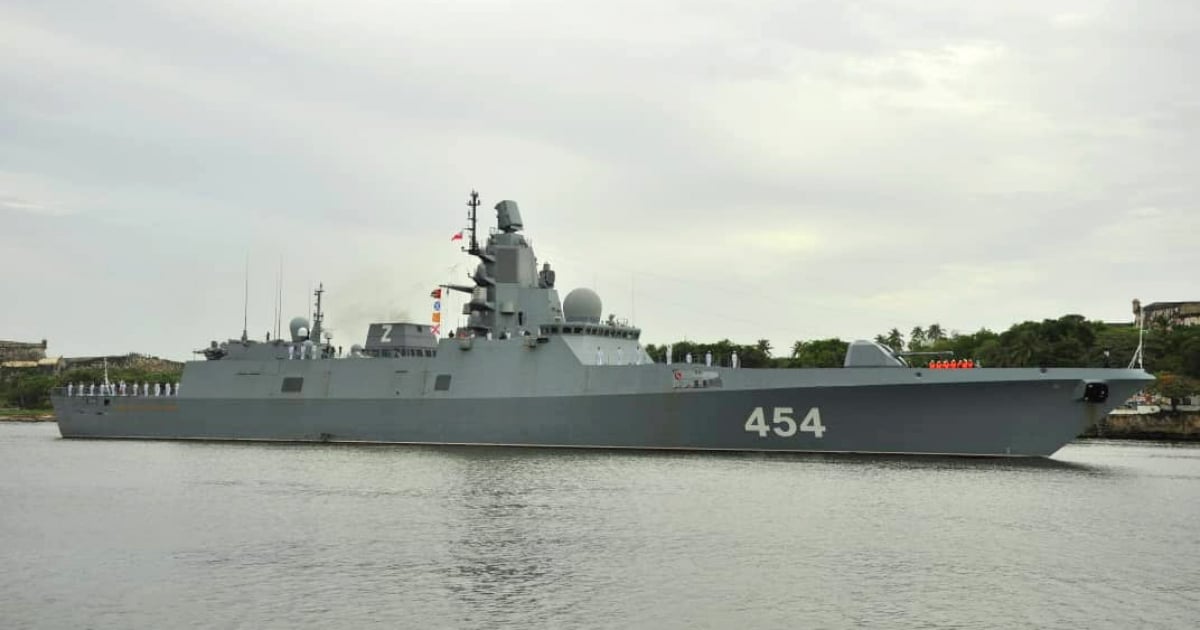The recent arrival of a fleet from the Russian Navy in Havana Bay, featuring a nuclear submarine, an oil tanker, a salvage tug, and a modern frigate, has sparked a mix of admiration and criticism among Cubans. This deployment, set to continue until June 17, has captured the attention of both locals and international observers, highlighting Russia's significant military presence in Cuba at a time of escalating geopolitical tensions.
The arrival of these vessels brings back memories for Cubans of the October Crisis of 1962 when Cuba was a Soviet pawn in the strategic game between the two superpowers. This event not only marked a critical point in the Cold War but also demonstrated how easily the island can become a battleground for foreign interests. The echoes of that crisis still resonate in the collective memory, and the current situation is no less concerning. History appears to be repeating itself with the current regime, which, despite the lessons of the past, continues to allow Cuba to become a pawn on the chessboard of great powers.
The Cuban government welcomes the Russian fleet with pride, believing that this action validates their regime on the world stage. However, they fail to understand that the Russians are merely using Cuba in a new strategic move. In the context of the Ukraine conflict, NATO is moving its weapons closer to Russia, and in response, Russia is placing its armaments near the United States. The Russian fleet's arrival in Havana is not an act of selfless support; it is a calculated maneuver aimed at balancing power against Western actions in Ukraine. Will this work out for Russia? It might, or it might not. History has shown that geopolitical gambles of this magnitude are highly unpredictable and can have devastating consequences.
What matters here is that Cuba, now as in the October Crisis, will be just a disposable pawn. And Díaz-Canel should know this if he had any sense. The Cuban leadership seems to forget that in the game of superpowers, pawns are expendable. The risk of turning Cuba into a battleground once again is real and terrifying. The current situation is no different: Cuba risks being caught in the middle of a conflict between giants, with no real benefit to its population.
For Cubans, this visit changes nothing. Comments on social media and in the media clearly reflect their real needs: food and electricity. "Now we are really good, instead of bringing food and medicine, they bring weapons," says Melani Gasca, while Rosa Maria Rivero Garcia expresses: "Why so many warships? FOOD, MEDICINE, AND POWER PLANTS are what we need." The Cuban people are tired of military displays and of being used as bargaining chips in conflicts that do not benefit them. The reality is that these warships bring no solutions to the everyday problems of Cubans. The shortages of food, medicine, and electrical power are the real urgencies that the regime should address.
Will this visit be just a footnote? Let's hope so, and that the Russians take their missiles elsewhere. A prolonged stay or if this visit turns into an advance of Russian bases in Cuba could create a potentially dangerous situation for the island, and a drastic increase in restrictions imposed by the U.S. embargo. Cuba cannot afford to become an enemy of the United States once again. The country does not need to be in the middle of another October Crisis, especially not at a time like this. History should serve as a lesson and not just a memory to avoid repeating past mistakes in the present.
The government continues to prove itself as nothing more than a massive obstacle in the path of the Cuban people towards prosperity.
Key Concerns About Russian Military Presence in Cuba
This section addresses common questions regarding the recent arrival of the Russian naval fleet in Cuba and its implications.
Why did the Russian naval fleet arrive in Cuba?
The Russian naval fleet's arrival in Cuba is seen as a strategic move in response to NATO's military actions near Russia amidst the Ukraine conflict.
What are the potential risks of this military presence for Cuba?
The risks include turning Cuba into a battleground in a conflict between superpowers, increased U.S. embargo restrictions, and no real benefits for the Cuban population.
How are Cubans reacting to the Russian fleet's presence?
Many Cubans have expressed frustration, emphasizing that their real needs are food, medicine, and electricity, rather than military displays.
What historical event does this situation remind Cubans of?
This situation reminds many Cubans of the October Crisis of 1962, when Cuba was a pivotal point in the Cold War between the United States and the Soviet Union.
